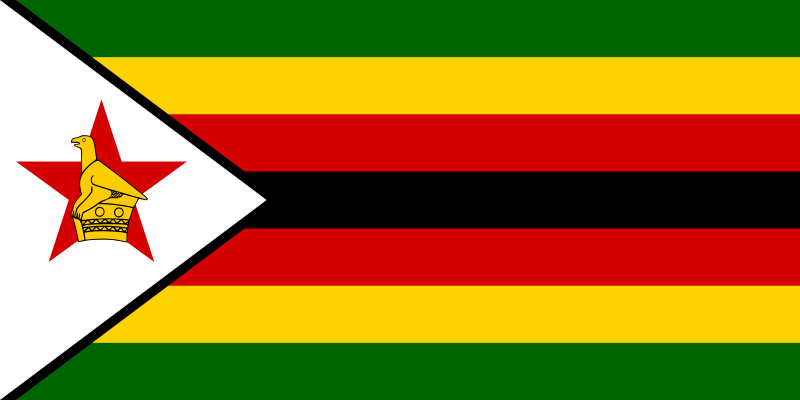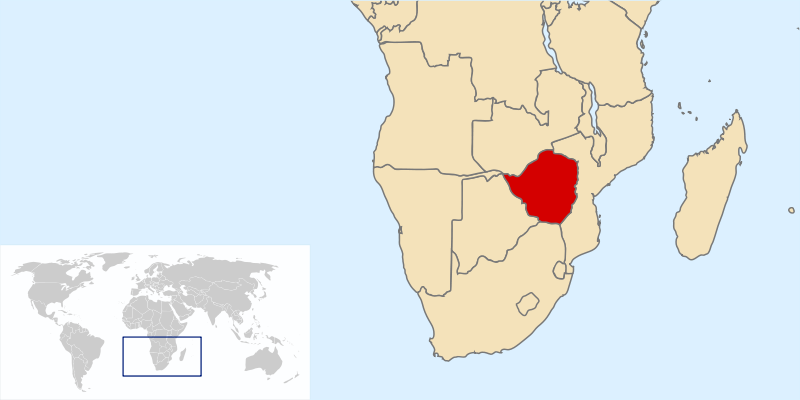 Zimbabwe (English pronunciation: /zɪmˈbɑːbweɪ/ zim-BAHB-we; officially the Republic of Zimbabwe and formerly Southern Rhodesia, theRepublic of Rhodesia, and Zimbabwe Rhodesia) is a landlocked country located in the southern part of the continent of Africa, between the Zambezi and Limpopo rivers. It is bordered by South Africa to the south, Botswana to the southwest, Zambia to the northwest and Mozambique to the east.
Zimbabwe (English pronunciation: /zɪmˈbɑːbweɪ/ zim-BAHB-we; officially the Republic of Zimbabwe and formerly Southern Rhodesia, theRepublic of Rhodesia, and Zimbabwe Rhodesia) is a landlocked country located in the southern part of the continent of Africa, between the Zambezi and Limpopo rivers. It is bordered by South Africa to the south, Botswana to the southwest, Zambia to the northwest and Mozambique to the east.
Zimbabwe has three official languages: English, Shona (a Bantu language), and Ndebele (also a Bantu language).
Zimbabwe began as a part of the British crown colony of Rhodesia. President Robert Mugabe is the head of State and Commander in Chief of the armed forces. Morgan Tsvangirai is the Prime Minister. Mugabe has been in power since the country’s long war for independence. Although initially during the 1980s his administration was credited with improving the standard of living and the economy, his rule has been characterized by gross economic mismanagement, hyperinflation, and reports of human rights abuses. The collapse of the nation’s economy and widespread poverty and unemployment has increased support for Prime Minister Morgan Tsvangirai and his opposition party,Movement for Democratic Change, which in late 2008 agreed to share power with Mugabe.
Mineral exports, agriculture, and tourism are the main foreign currency earners of Zimbabwe. The mining sector remains very lucrative, with some of the world’s largest platinum reserves being mined by Anglo-American and Impala Platinum. Zimbabwe is the biggest trading partner of South Africa on the continent.
The government of Zimbabwe faces a variety of economic problems after having abandoned earlier efforts to develop a market-oriented economy. Problems include a shortage of foreign exchange, soaring inflation, and supply shortages. Zimbabwe’s involvement from 1998 to 2002 in the war in the Democratic Republic of the Congo drained hundreds of millions of dollars from the economy.
The downward spiral of the economy has been attributed mainly to mismanagement and corruption of the Mugabe regime and the eviction of more than 4,000 white farmers in the controversial land redistribution of 2000. Zimbabwe was previously an exporter of maize but has become a net importer. Tobacco exports and other exports of crops have also declined sharply.
Tourism was an important industry for the country, but has been failing in recent years. The Zimbabwe Conservation Task Force released a report in June 2007, estimating 60% of Zimbabwe’s wildlife has died since 2000 due to poaching and deforestation. The report warns that the loss of life combined with widespread deforestation is potentially disastrous for the tourist industry.

Notes from Wikipedia








